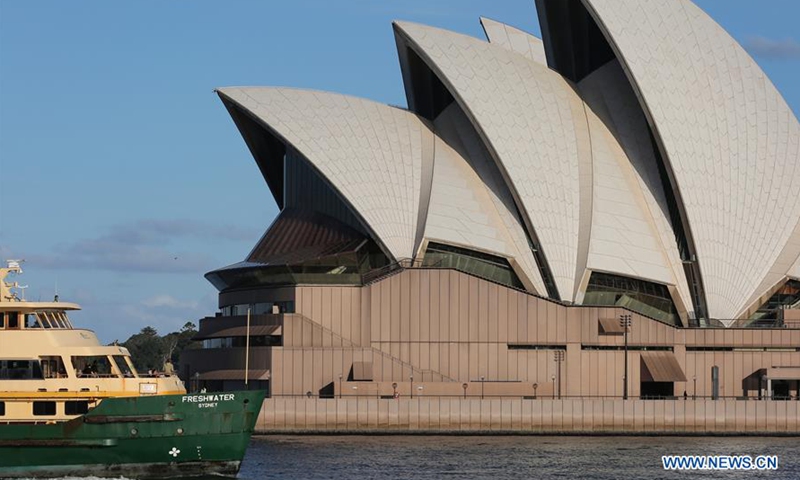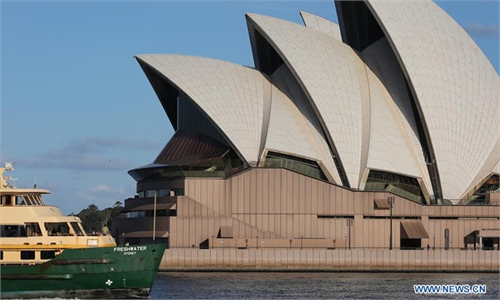SOURCE / INDUSTRIES
Rejection of Australia barley tariff appeal is welcomed

Photo taken on Nov. 2, 2020 shows the Sydney Opera House in Sydney, Australia. The Sydney Opera House reopened to audiences on Sunday evening, for the first time since March when it was forced to close due to the pandemic, breathing life back into the country's struggling performing arts sector. (Xinhua/Bai Xuefei)
China's anti-dumping duties on Australian barley are legitimate, and they have effectively safeguarded the interests of the domestic barley industry, Chinese experts and barley growers said on Tuesday.
China has reportedly rejected Australia's appeal to remove the 80-percent barley tariffs imposed in May, according to media reports on Monday.
Xu Ru'gen, executive director of the beer and barley association in East China's Jiangsu Province, welcomed the news, saying that the tariffs have had a notable effect in safeguarding the interests of Chinese barley growers.
"This is a strong message in safeguarding domestic barley industry, which has contracted under the pressure of massive Australian barley imports," Xu told the Global Times on Tuesday. Jiangsu is a major barley-growing region in China.
Farmers in China lost interest in growing barley as prices fell due to a large influx of Australian barley. The barley-growing area in Jiangsu declined to 1 million mu (66,666.7 hectares) from more than 3 million mu in the past few years.
"An influx of Australian barley took away the pricing power of domestic barley growers," Xu said, noting that the tariffs have effectively altered the situation. Now, farmers have resumed growing the crop and seed supply is scarce.
Australian's barley exports to China were worth about $1.05 billion in 2018, according to a Reuters report.
Song Wei, associate research fellow at the Chinese Academy of International Trade and Economic Cooperation, told the Global Times on Tuesday that Australia typically exports nearly half of its barley crop to China. Song said China's probe is objective and fair, and Australia is free to appeal the case to the dispute settlement body at the WTO.
Australia threatened in May to bring the matter to the WTO but has yet to launch a formal case.
Worries have risen in Australia over expanding trade skirmishes with China, after a number of Australian exports including beef, barley, wine, cotton and coal ran into problems in China.
Song said Australia should not undermine China-Australia ties by provoking China and acting like a "deputy sheriff" to the US.
Song noted that China has rolled out its unreliable entity list and updated its export control law to give more teeth to its efforts to defend its economic interests, but the process is accompanied by efforts to ensure that all trading partners of China have proper channels and mechanisms to protect their interests.
Yu Lei, a chief research fellow at the Research Center for Pacific Island Countries at Liaocheng University, said that China's trade disputes with Australia should not be seen as a trade war.
"Various reasons - enhanced environmental commitment, the market's self-adjustment and rebalancing, the global economic and trade situation, as well as the COVID-19 pandemic - are behind Australia's declining exports to China," Yu told the Global Times on Tuesday.
Also, Australia's antidumping probes far outnumbered China's during past decades, Yu said.


